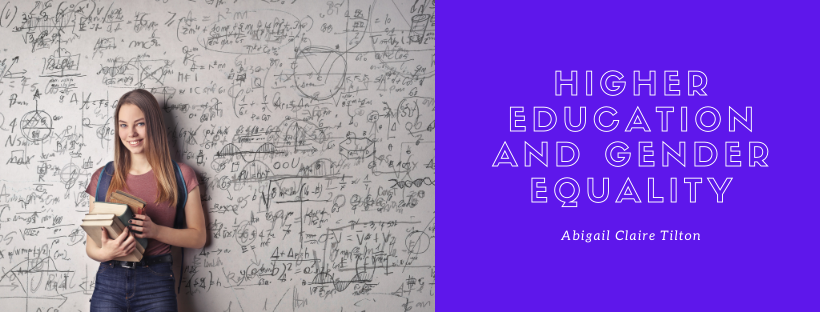For some, higher education is seen as the great equalizer between men and women, and, lower class and upper class. Higher education is meant to provide a way for people to excel and open doors that would otherwise be closed to those without degrees. For women, higher education offers a chance to gain meaningful experience and growth as scholars.
Unfortunately, there still seems to be a discrepancy between gender equality and higher education. Although more women than ever are being enrolled and attend college, many feminists and feminist scholars see the influx of women in soft science fields as a way for administrations to play the number game. Women are still being rejected in STEM fields and other predominantly male areas of study. Professors and administrators at colleges tend to be male, which means that there is a lack of equality as women are being delegated to soft science fields instead. Women have been at the forefront of fighting for gender equality within higher education, crafting new areas of studies such as gender studies and women’s studies in order to help bring attention to the inequalities different individuals may face. Despite this, feminist scholars are left to wonder if the systems that perpetuate misogyny are still in place at colleges, with the administrators of colleges and professionals still being a largely male field, despite the growing number of female professionals.
In many cases, there is still work to be done to create a more equal space in gender especially where people can feel comfortable discussing gender disparities. It seems that there are two aspects of higher education that clash with each other in this regard. There is a part in higher education that leads to the creating of scholars in gender studies with knowledge of how to fix things and the systematic treatment of higher education as a commodity that must be sold to people from all over the world. This means that there is a larger focus to sell university as an experience that sticks with the status quo. In truth, higher education is a business model that survives on established social norms, which leaves very little space for active change especially in regards to gender equality in spaces of higher education.
